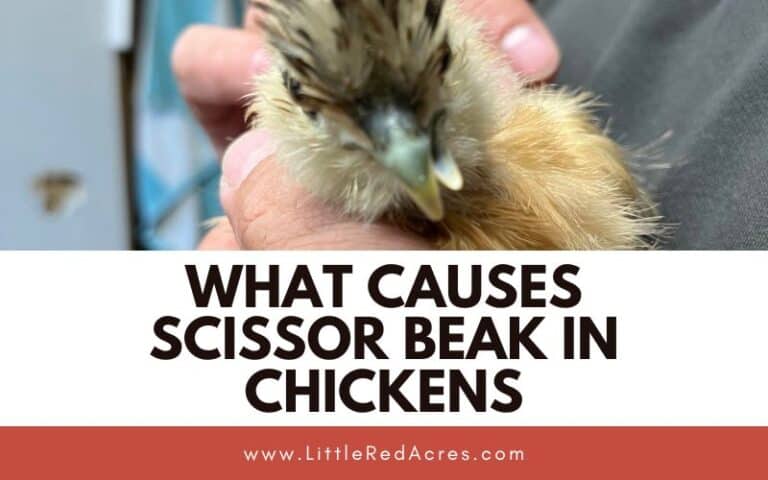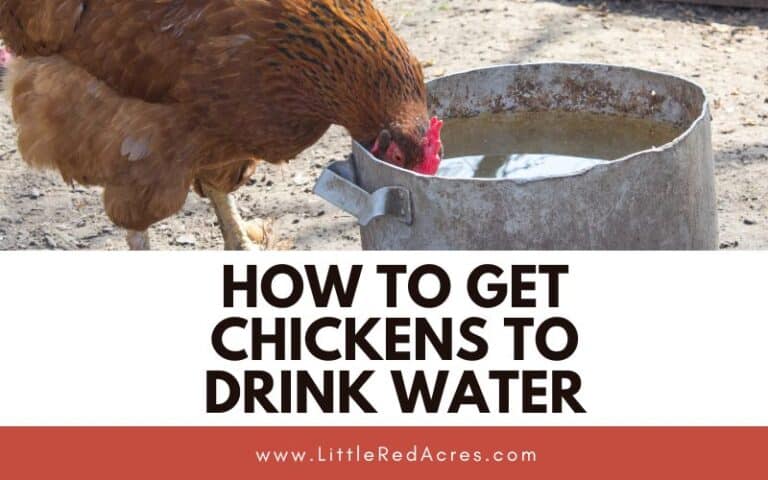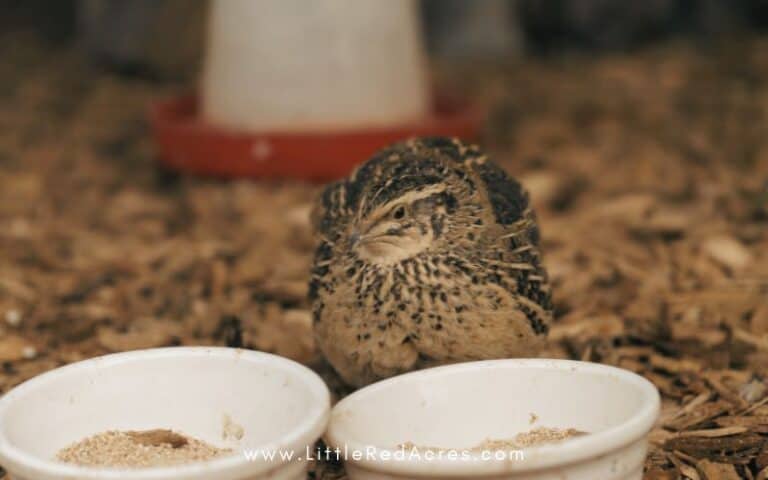How to Stop Chickens from Eating Eggs
Inside: Once a hen starts eating eggs, it can be a difficult and possibly impossible dilemma to unplug. Here are ways to prevent, it and stop it now.
Is your hen eating eggs? Yikes! What a horrible mess. Once a hen starts eating eggs, it can be a difficult and possibly impossible dilemma to unplug. Particularly if they train their friends to do likewise!
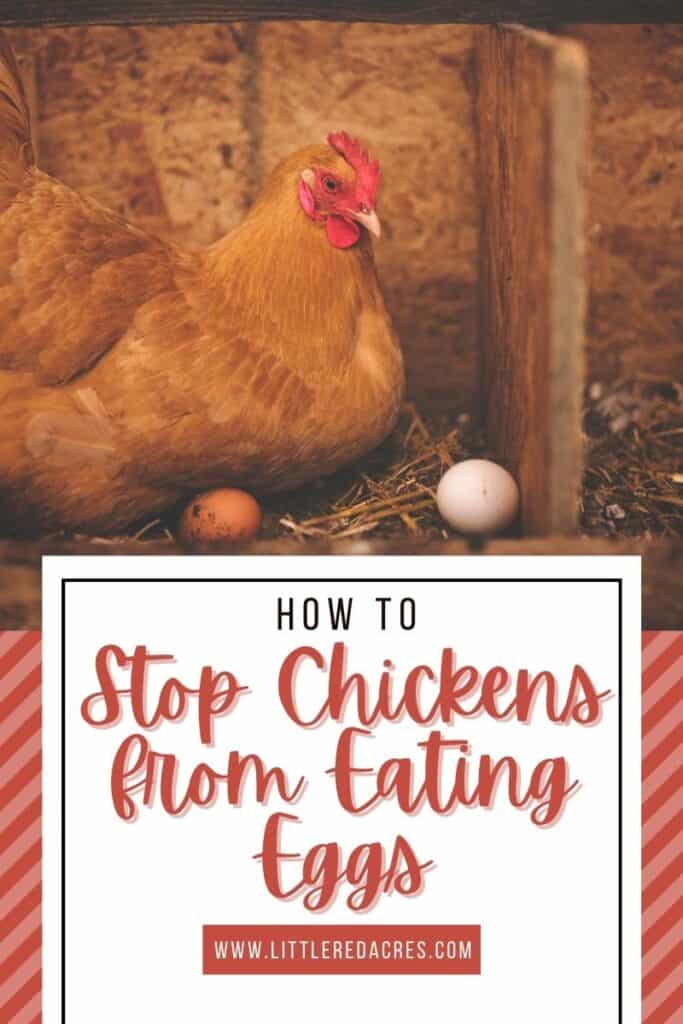
This post may contain affiliate links, see my disclosure policy for more information.
Why Do Chickens Eat Their Eggs?
There are a few reasons why a hen might start eating eggs. The first and probably most likely reason is accidental discovery.
An egg can break at any time, and a hen may begin to eat it and develop a taste for eggs. So, if the initial cause for egg eating was accidental, it may gradually become a habit for your chicken-the more reason you should stop it as soon as possible.
Get updates & freebies delivered to your inbox!
Stress can be another reason. Stressed chickens tend to pluck and peck more, including the feathers and eggs.
A laying hen requires a calcium intake of 4 grams to 5 grams every day. Hens are more likely to start eating eggs when they are lacking calcium. After all, eggshells contain about 40% calcium.
Just like humans, chickens get bored just like them, and their boredom will drive them to consume the yolks of the eggs left in a nesting box.
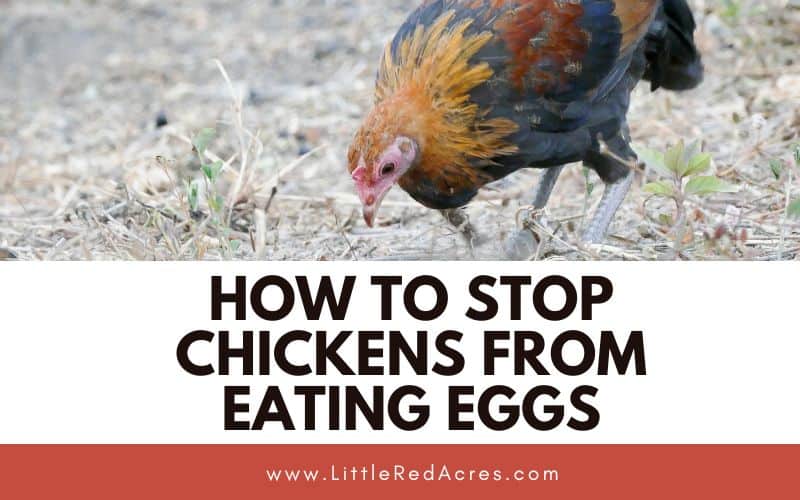
The obvious solution to preventing your birds from eating their eggs is to make sure you are taking excellent care of your birds. And know that while you are doing your best, you will probably find an egg that has been eaten at some point.
My standard Brahmas for example LOVE to kick everything out of their nesting boxes. So we end up with a broken egg now and then. I make sure to remove all of the broken eggs – yolk, whites, and shell – so they aren't getting a taste for them.
How to Stop Chickens from Eating Eggs
If your chickens are eating their eggs, you'll want to break this habit right away. The longer they do this, the more difficult it is to prevent.
Make a few simple changes to their hen house boxes and living conditions to put your hens off their eggs.
- Provide at least one 1-by-1-foot nest for every four or five hens in the flock.
- Put a ceramic egg or golf ball in the nesting box.
- Make sure your chickens are getting enough protein and calcium.
- Collect eggs frequently.
- Provide a cushioned nesting box.
- Only feed your chickens cooked/scrambled eggs.
- Give them plenty of things to do and peck at.
- Get a roll-away nesting box.
All we can do is try our best with our chickens and make it as impossible as we can for them to develop a taste for raw eggs.
Frequently Asked Questions
How to tell which chicken is eating eggs? To determine whether your flock members are responsible for the egg eating, examine your hens. Egg-eating hens usually have dried yolk on their beaks and the sides of their heads.
How can you tell if an egg has a chick? Candle eggs that you believe to have began to develop.
Can you tell what color egg a chicken will lay? You may be able to tell the shell color by the hen's earlobe. Hens with white earlobes typically lay white or lightly tinted eggs. Hens with red earlobes most commonly lay brown eggs. This is not 100% accurate.



